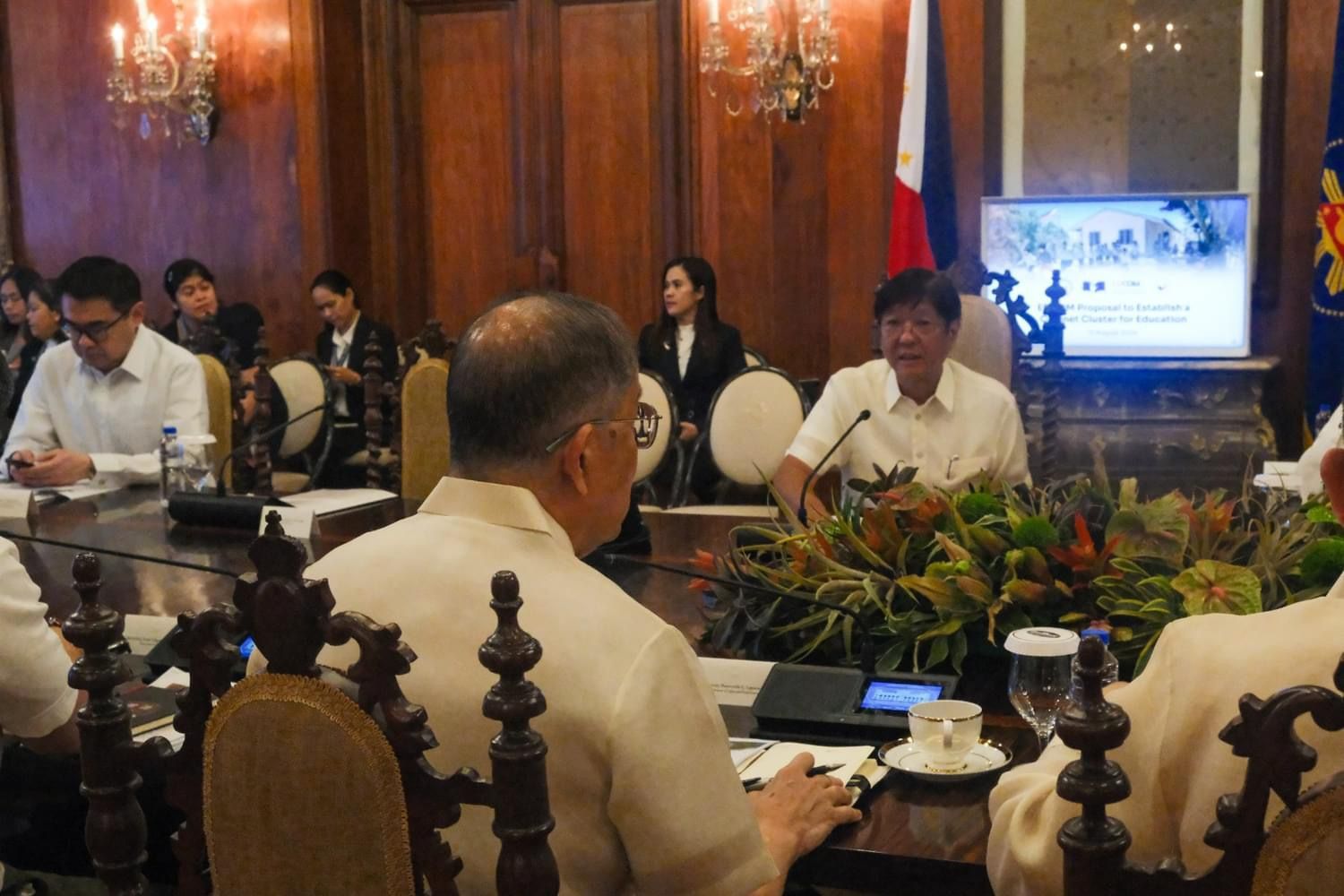President Marcos has approved the creation of a Cabinet cluster to tackle the country’s education crisis in a “whole system rather than in multi-agencies silos.”
 President Ferdinand ‘Bongbong’ Marcos Jr. presides over a sectoral meeting on the creation of Cabinet Cluster for Education on Tuesday, Aug. 13, 2024. (Yummie Dingding / PPA Pool)
President Ferdinand ‘Bongbong’ Marcos Jr. presides over a sectoral meeting on the creation of Cabinet Cluster for Education on Tuesday, Aug. 13, 2024. (Yummie Dingding / PPA Pool)
This was announced by Palace press briefer Daphne Oseña-Paez after a sectoral meeting held in Malacañang on Tuesday, Aug. 13.
“President Ferdinand R. Marcos Jr. approved in principle the creation of a Cabinet Cluster for Education. This is to synthesize a common vision and common direction to reform the education system, to have a positive long-term effect on every Filipino student and graduate,” she said.
The move came after Marcos recognized the “urgent need to address this learning crisis that has crippled our education system for decades,” which Oseña-Paez noted has resulted in a "learning gap of 5.5 years for Filipino students."
“President Marcos directed the agencies to device a coherent and system-wide national integrated education and workforce development strategy that starts from early childhood education to basic education, senior high school, and so on,” the official said.
“The President directed the proposed Cabinet cluster to ensure that education issues are tackled as a whole system rather than in multi-agency silos,” she added.
Newly appointed Department of Education (DepEd) Secretary Sonny Angara, who held a press conference with Executive Director Karol Mark Yee of the Second Congressional Commission on Education (EDCOM 2), welcomed Marcos’ decision.
“We are very thankful to the President for his swift action,” the secretary said, noting that this was only their first presentation on the proposal to create a Cabinet Cluster for Education.
He also shared how the Chief Executive wants to “fast track some of the actions” because the education crisis is a “deep-seated problem” that demands urgency.
While Yee admitted that resolving the learning crisis remains the primary duty of DepEd, he also said that “it is not something that could achieve on its own” and underscored the need for other agencies to help.
“It is really the national education and workforce development plan that is long-term that will anchor them all to make sure there is one coherent direction,” the official, who made the presentation to Marcos, added.
He described that the Cabinet cluster’s work would be to “formulate a 10-year integrated national education and workforce development plan” and “make sure the agency targets and budgets are aligned to support this plan every year.”
According to Angara, the cluster would be composed of the DepEd, the Commission on Higher Education (CHED), Technical Education and Skills Development Authority (TESDA), the Department of Labor and Employment (DOLE), and the Department of Budget and Management (DBM).
A 2022 World Bank report on global learning poverty revealed that nine in 10 Filipinos could not read and understand a simple age-appropriate text at the age of 10.
The 2022 Program for International Student Assessment (PISA) also showed that the Philippines remain among the world’s weakest in math, reading and science.
Just less than 25 percent of Filipino students who took the test in 2022 reached the minimum level of proficiency in math, reading and science. These scores indicated that the Philippines performed worse than the global average in all categories.